One of the main objectives of the BSSC2021 is to establish a platform for connecting scientists and decision makers. We are therefore happy to present eight keynote speakers who each have made long-lasting contribution to marine science and the conservation and management of the marine environment.
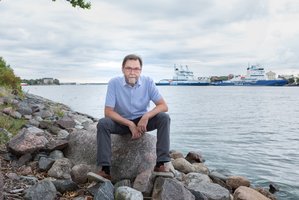
In this keynote I will explore the evolvement of the Baltic Sea science through the prism of its linkages to societal needs. From urge to understand the complex hydrology of the unique brackish see and limits of its biological productivity in early 20th century, to necessity to assess true levels and effects of contamination, status of biological diversity in the 70-ties and 80-ties, to holistic assessments of the state of marine ecosystem underpinning the Baltic Sea Action Plan, projections of the potential effects of climate change. This development in turn has led to ever increasing demand for cooperation and coordination – from individual scientists and small university-based groups to specialized institutes and eventually to larger cross-border collaborative programmes. Moreover, the search for solutions of today’s ‘grand challenges’ has led us to necessity of combining the effort of natural and societal science. Now stepping into the third decade of XXI century, do we have a shared vision on the role of the Baltic Sea science and responsibilities of its man- and women(!) power, are we capable to convey the scientific message so that it is embraced by ordinary citizens and policy levels? This presentation was inspired by Dr. Kaisa Kononen – former Executive Director of BONUS, and will be rooted to a great extent in the BONUS experiences and lessons learned.
Biography:
Andris Andrusaitis, PhD, serves as the Acting Executive Director of BONUS EEIG since August 2018. He also coordinates BANOS CSA “Towards the joint Baltic Sea and the North Sea research and innovation programme”. This action prepares a framework for launching the joint Baltic Sea and the North Sea research and innovation programme as a successor of the Baltic-Sea-focused BONUS Art. 185 programme. Andris joined the BONUS Secretariat in 2008 after having been involved with BONUS since the ERA-NET times. Until August 2018 Andris served as the Programme Manager, being responsible for the scientific coordination of the programme. Andris Andrusaitis received his degree in hydrobiology in 1987 from Shirshov Institute of Oceanology in Moscow. He initiated the establishment of the Latvian Institute of Aquatic Ecology, where he served as the Director from 1995 to 2003 continuing his research in plankton ecology of the Baltic Sea. During 2003-2007, he worked as the Assistant Coordinator of the Baltic Sea Regional Project funded by the World Bank and the Global Environment Facility. In 2006-2009 Andris coordinated Latvian national research programme on impact of climate change on aquatic systems (KALME).
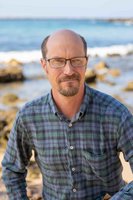
Growing evidence highlights the importance of biodiversity in mediating how communities and ecosystems function. However, the applicability of biodiversity research to real-world biodiversity changes has been hampered by a lack of realism in experiments to date. This is a particular concern, as current global-scale, non-random, and largely human-caused declines in biodiversity are a primary motivation behind research into the functional consequences of biodiversity change. In my presentation, I will present several case studies from coastal marine systems highlighting how incorporating realism into experiments can enhance our understanding of how biodiversity affects communities and ecosystems. These will include (1) an analysis highlighting how the effects of species loss on intertidal primary productivity change along a 500-km latitudinal gradient; (2) an experiment demonstrating the cornerstone role that rare basal species can play in disproportionately mediating the structure of the community they support; and (3) experiments illustrating the unexpected consequences of the loss of consumers for the functioning of marine ecosystems.
Biography:
Prof. Matthew Bracken studies the links between community-level and ecosystem-level processes, especially in marine systems, including the role of biodiversity as a driver of nutrient cycling and biomass accumulation. He is also interested in the understanding local-scale versus large-scale processes, spatial subsidies, and the roles of consumers as mediators of productivity and nutrient availability. Prof. Bracken studied at the University of Puget Sound (B.S., Biology), and Oregon State University (Ph.D., Zoology), and worked at the University of California, Davis (Postdoc, Bodega Marine Lab) before becoming a faculty member, first at Northeastern University and now at the University of California, Irvine.
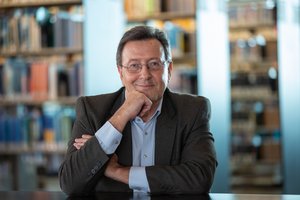
Deterioration of marine ecosystems under multiple pressures, including local pressures, such as eutrophication, and global pressures, such as climate change, as epitomized by the Baltic Sea, requires major efforts to meet global and regional biodiversity goals, such as vision for a healthy ocean embedded in SDG 14, Life Below Water. Likewise, the window of opportunity to meet climate goals, as delineated by the Paris Agreement is narrow and is rapidly closing, requiring prompt and effective action, as demanded under SDG 13, Climate Action. Clearly, SDG14 cannot be reached without meeting the objectives of SDG13. However, progress toward rebuilding marine life and achieving SDG14 is emerging as a powerful component toward achieving climate goals. This includes a growing focus on Nature Based Solutions, which include a diversifying slate of options involving the conservation and restoration of marine ecosystems. The Baltic Sea has often pioneered the actions to reverse the deterioration of marine ecosystem and also has a pioneering role to play in the deployment of Blue Nature Based Solutions to advance toward achievement of marine biodiversity and climate goals.
Biography:
Carlos M. Duarte is a Professor of Marine Science at the King Abdullah University of Science and Technology (KAUST), in Saudi Arabia, and Professor at the Arctic Research Center, Aarhus University, Denmark. Carlos’ research focuses on understanding the effects of global change in marine ecosystems, developing marine-based solutions to global challenges, including climate change, and develop evidence-based strategies to rebuild the abundance of marine life by 2050. He has conducted research across all continents and oceans, spanning most of the marine ecosystem types, from inland to near-shore and the deep sea and from microbes to whales, reported in over 850 scientific papers.
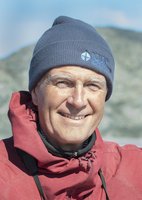
Methane is a terminal degradation product of deeply buried organic matter. It is produced in great quantities in the subsurface seabed but is broken down again by microbial oxidation with sulfate so that very little escapes from the sediment. We combined seismo-acoustic surveys and geochemical analyses of sediment cores to quantify methane fluxes in the southern Baltic Sea and to map the distribution and regulation of methane production. Highly sensitive radiotracer experiments to determine the rates of methanogenesis and sulfate reduction showed that the degradation of organic matter is controlled by sediment age according to a power law, irrespective of the terminal process. Surprisingly, we discovered that the predominant archaea producing methane are also oxidizing the methane, partly in the same sediment. This generates a cryptic methane cycle where up to 40% of the entire methane production remains undetected by chemical analyses and diffusion-reaction modeling. The dual function of methanogenic archaea appears to be due to a syntrophy with different bacteria, whereby the direction of archaeal methane metabolism depends on whether they team up with bacteria that either donate electrons to or accept electrons from the archaea.
Biography:
Bo Barker Jørgensen has a PhD (1977) in marine biology from Aarhus University where he worked as a senior lecturer and research professor. In 1992 he became the director of a new Max Planck Institute for Marine Microbiology in Bremen, Germany. He returned to Aarhus 2007, was appointed professor at the Department of Biology and founded the Center for Geomicrobiology, a center of excellence under the Danish National Research Foundation. His research interests include the biogeochemistry and microbiology of marine sediments with emphasis on the organic carbon, methane, sulfur and iron cycling.
Chaired by Anna Sobek and Emma Undeman, Stockholm University
Use and emissions of chemicals have developed along with increasing global population, wealth and technical advances. Our modern society now relies on the use of synthetic substances in a wide range of applications. The Baltic Sea is infamous for the high levels and effects in wild-life of several well-known chemical pollutants that were used in enormous quantities before processes such as bioaccumulation and long-range transport were understood. The chemical mixture in the sea is however constantly changing with the development of society. Chemicals management has so far been one step behind; regulators are, for several reasons, unable to predict the impact of the chemicals that industry designs and produces. Welcome to a discussion of how the scientific progress can apply to managers reality. We will discuss the great challenge society is facing in understanding how chemicals can be used sustainably without causing unacceptable harm to humans and the environment. What are the limitations of chemicals management today, and which are the ways forward? Marine management focuses on a limited number of well-known pollutants, whereas state-of-the-art in the scientific community is to consider the combined impact of all chemicals entering the sea. What should we do with the limited resources at hand, should we change priorities? How can the scientific community contribute? To what extent is our current strategy built on accepting an unknown risk?
Biography:
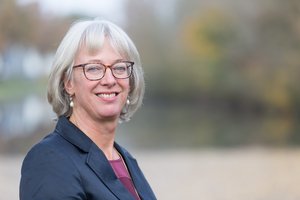
Prof. Dr Annemarie van Wezel (1968, MSc Biology UU, PhD environmental chemistry and toxicology UU) has long experience as scientist in water quality, risk assessment and mitigation, environmental toxicology and chemistry, and environmental policy evaluation. She was granted as applicant and co-applicant many projects in the field of chemicals of emerging concern and water quality, examples are the European projects FP7 Solutions, ITN ECORISK2050, ITN PERFORCE3, and Dutch NWO funded projects such as Shale gas & water, TRAMP (Technologies for risk assessment for microplastics), EMERCHE (Effect-directed Monitoring tools to assess Ecological and human health Risks of Chemicals of Emerging concern in the water cycle), RUST (Re-USe of Treated effluent for agriculture), PsychoPharmac’eau (Psychopharmaceutical Prevention & Pilots to Reduce Effects in the water cycle), NWO Large Scientific Infrastructure; Authorative and Rapid Identification System for Essential biodiversity information (ARISE) and NWO Perspective AQUACONNECT. She is interested in the science-to-policy interface, in scientific outreach and has ample experience in media appearances. She is a member of the Dutch Health Council and the Dutch Board on authorization of plant protection products and biocides CTGB. She holds the chair in Environmental Ecology and is Scientific Director of IBED (Institute for Biodiversity and Ecosystem Dynamics) at the University of Amsterdam.
Associate Professor Emma Schymanski is head of the
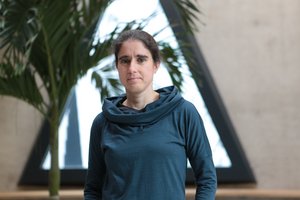
Environmental Cheminformatics (ECI) group at the Luxembourg Centre for Systems Biomedicine (LCSB), University of Luxembourg. In 2018 she received a Luxembourg National Research Fund (FNR) ATTRACT Fellowship to establish her group in Luxembourg, following a 6 year postdoc at Eawag, the Swiss Federal Institute of Aquatic Science and Technology and a PhD at the Helmholtz Centre for Environmental Research (UFZ) in Leipzig, Germany. Before undertaking her PhD, she worked as a consulting environmental engineer in Perth, Australia. She has over 90 publications and a book, and is involved in many collaborative software efforts. Her research combines cheminformatics and computational (high resolution) mass spectrometry approaches to elucidate the unknowns in complex samples, primarily with non-target screening, and relating these to environmental causes of disease. An advocate for open science, she is involved in and organizes several European and worldwide activities to improve the exchange of data, information and ideas between scientists to push progress in this field, including NORMAN Network activities (e.g. NORMAN-SLE www.norman-network.com/nds/SLE/), MassBank (
https://massbank.eu/MassBank/), MetFrag (https://msbi.ipb-halle.de/MetFrag/) and PubChemLite for Exposomics (https://doi.org/10.1186/s13321-021-00489-0).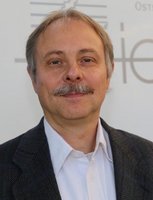
The Baltic Earth program, an independent network of scientists, is focusing on Earth system science within the Baltic Sea region, organizing regular conferences, workshops and summer schools. One of the ongoing activities of Baltic Earth is the implementation of assessment reports of the current state of the science in different research fields in the Baltic Earth context. Currently, a series of review papers, called BEAR (Baltic Earth Assessment Reports), is underway, summarizing the state of knowledge in various research fields identified by the Baltic Earth science plan. This work also discusses uncertainties and knowledge gaps. The reviews focus, inter alia, on climate change and impacts in the Baltic Sea region. Two of such assessments have been performed before, in 2008 and 2015. In this presentation, I will summarize first results of this latest, third assessment of our current knowledge about past and future climate changes in the Baltic Sea region and its consequences for the marine and terrestrial ecosystems.
Biography:
Markus Meier is a physical oceanographer and climate scientists with focus on Earth System sciences, regional climate system modeling, detection and attribution and ensemble modelling and analysis. He is head of the Department of Physical Oceanography and Instrumentation at the Leibniz Institute for Baltic Sea Research Warnemünde with about 45 employees today, professor of physical oceanography at the University of Rostock, senior scientist at the Swedish Meteorological and Hydrological Institute and chair of the Science Steering Group of the international Baltic Earth Programme on Earth System Science for the Baltic Sea Region (http://baltic.earth). He has worked with regional climate and environmental research with focus on the Baltic Sea, North Sea, Laptev Sea and Pan Arctic Ocean since 1996 and collaborated with scientists around the world on many other coastal seas.
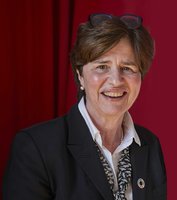
Fishing and eutrophication usually steal center stage when we consider anthropogenic influences on the ocean biosphere. In fact, the most profound anthropogenic changes in the ocean are caused by the release of waste greenhouse gases into the atmosphere. Enormous ocean habitat changes are caused through the acidification of surface waters as a consequence of the changing CO2 in the atmosphere. In addition, well over 90% of the excess heat energy stored near the Earth’s surface associated with recently recorded global warming is stored in the ocean. Many studies on the effect of climate change on the ocean biosphere have focused on the effects of temperature change on individual organisms. In fact, what is likely far more interesting is how temperature changes along with associated changes in oceanographic features, such as currents and water column stratification characteristics, influence the structure and function of marine ecosystems. These changes not only directly impact economically important ecosystem services such as fishing but can also have knock-on effects that impact provisioning services such as the global carbon cycle, thus creating positive feedbacks in the global climate system. This talk focuses on the potential consequences of climate change induced changes in ocean ecosystem function on the ecosystem services we have come to take for granted.
Biography:
KR is a professor in biological oceanography at the University of Copenhagen, leader of the Sustainability Science Centre (www.sustainability.ku.dk) and a principle investigator in the Center for Macroecology, Evolution and Climate (www.macroecology.ku.dk). Her research focuses on the importance of biological processes in the ocean for the uptake of CO2 from the atmosphere and how ocean biology, including diversity, contributes to ocean function in the Earth System. KR was Chairman of the Danish Commission on Climate Change Policy that reported in 2010 and presented a roadmap for how Denmark can become independent of fossil fuels by 2050. She is at present a member of the Danish Climate Council and was a member of the Independent Group of Scientists appointed by Ban Ki Moon to draft the 2019 UN Global Sustainable Development Report.
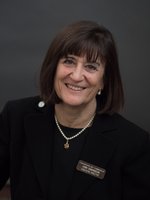
Critical and creative leadership is needed now more than ever. As political landscapes remain tumultuous, human populations continue to demand more of our natural resources every year. Nowhere is this more apparent than in the Chesapeake Bay watershed, the largest and most productive estuary in the United States and home to six percent of the country’s population. What can be learned from success achieved in the Chesapeake Bay region as we close the gap in achieving our water quality and fisheries management goals. How can we navigate the best response to impending changes and resource demands triggered by climate change, coastal inundation, population growth, intensification of agriculture, invasive species and so much more? Are these expected changes irreversible and how do we apply the best lessons learned to address anticipated future regime shifts? This talk reflects on five decades of science and policymaking to work in collaboration, as the Chesapeake Bay joins the Baltic Sea and all Coastal Sea restoration programs around the world to address the environmental challenges of the future.
Biography:
Ann Swanson has served as a leader in the Chesapeake Bay restoration for 38 years, the last 33 as the Executive Director of the Chesapeake Bay Commission. The Commission was created by state laws in Maryland, Pennsylvania and Virginia, and it is governed mostly by legislators from the three states. The Commission serves as a catalyst for the coordination and leadership of State and Federal legislative and policy action to restore the Bay watershed, and it is a formal signatory to the periodic Chesapeake Bay Agreements along with the federal government and the seven Bay jurisdictions managed by the Chesapeake Bay Program. The Commission represents the legislative arm of the Bay restoration. There is hardly a piece of environmental policy in the Bay region that does not reflect Ann’s influence.
Although Ann operates in a highly political environment, she is trained in the sciences. A trained wildlife biologist and forest ecologist, she graduated with honors from the University of Vermont and Yale University. She holds an honorary Doctor of Laws from the University of Vermont.
Ann has been recognized regionally, nationally and internationally for her work. She has served on numerous boards of advisors and has worked to create several well-established regional and local environmental organizations. She is a current board member of the Galapagos Conservancy and Maryland Sea Grant.